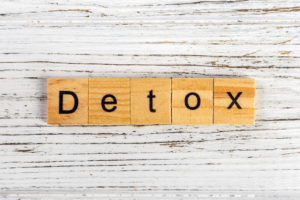When there is an issue that involves drugs or alcohol and has developed into an addiction, attempting to stop using the substances alone is not the best option. The first question in this process that may be asked is whether or not they need detox, but the answer is not always written in stone.
While many will find barriers to entering into treatment, or they’ll have the strength to forego the process alone, it’s essential to mention that if you’re seeking long-term abstinence from drugs or alcohol, you must go through a proper detox that involves medical professionals. Medical detox is often the first and most significant step in the drug addiction process, and a person will benefit from the efforts of counseling and therapy after being physically stabilized.
There are several different types of drug rehab, and that also rings true for the several different types of detox methods available. Each format is designed to meet specific needs for a particular kind of addiction and person. While one form may benefit one person adequately, the other could be a failed attempt.
One of the most critical pieces of this process is clinicians and their ability to assess the needs of the potential client thoroughly. Addiction treatment is a tailored process that requires extensive care for the individual in question, and if they do not receive this special attention, the entire process can be a disaster. Let’s delve a little deeper into what drug detoxification entails.

What Is Drug Detoxification?
Habitual users of drugs or alcohol, more often than not, begin to develop a physical dependence over time. Physical dependence is our bodies natural way of adapting to the foreign matter entering the system, and once it has been established, the body requires the drugs or alcohol to resume normal functions.
When someone becomes dependent on a substance, abrupt cessation or a dramatic reduction can result in withdrawal symptoms. These symptoms will vary from one person to another and depend on the substance they were using. Some symptoms may be mildly uncomfortable, while others can be life-threatening.
Some common symptoms of withdrawal include:
Alcohol
- Anxiety
- Insomnia
- Nausea
- Vomiting
- Rapid pulse
- Repetitive movements
- Tremors
- Hallucinations
- Illusions
- Seizures
- Delerium Tremens (DTs)
Opioids (Prescription Pain Relievers, Heroin, Fentanyl)
- Goose bumps
- Muscle aches
- Flu-like symptoms
- Sweating
- Fever
- Nausea
- Vomiting
- Diarrhea
- Watery eyes and runny nose
- Insomnia
- Irritability
- Depression
Sedative-Hypnotics
- Insomnia
- Anxiety
- Nausea
- Vomiting
- Increase pulse
- Excessive sweating
- Pacing
- Illusions
- Hallucinations
- Tremors
- Seizures
- Delerium Tremens (DTs)
Stimulants
- Fatigue
- Nightmares
- Insomnia
- Hypersomnia
- Slowed movements and thought
- Psychosis
- Increased appetite
- Inability to experience pleasure
- Depression
- Suicidal thoughts
How Long Does Withdrawal Last?
The timeline of withdrawal is going to vary based on a few factors. Someone detoxing from stimulants is going to have a different experience than someone who is taking benzos, and someone taking extreme amounts of benzos will experience a different timeline than someone taking small amounts. Generally, however, the resolution of withdrawals are impacted by the half-life of the substance, the mode of administration, the frequency of use, and the average dose consumed.
- When it comes to sedative withdrawal symptoms, they can appear in as little as a few hours after, or they could be delayed several days following the last use. Someone addicted to Xanax may experience these symptoms within six to eight hours of the previous dose, whereas someone taking Valium may not experience them for up to a week
- For stimulants, withdrawal symptoms will appear in a few hours and last a couple of days after the last dose
- Opioid drugs like heroin or painkillers can see symptoms initiate within six to 12 hours after the most recent dose and last up to seven days
- Longer-acting opioids such as methadone will have a delayed timeline, and symptoms may not appear until two to four days after last use, and take much longer to resolve
- Alcohol withdrawal symptoms will begin a few hours to several days after quitting and can last up to seven days
An individuals age, gender, physiology, and mental or physical health are all going to play roles in the severity of these withdrawals. Another factor to consider is if someone has quit several times prior to this experience. There is a disorder known as kindling where abstaining from central nervous system (CNS) depressant drugs or alcohol several times can bring on much more intense withdrawal symptoms. The different types of interventions can also affect the duration of withdrawal symptoms.
Social Detox

Social detox is a non-medical type of program that requires someone to abstain from drugs entirely. In essence, it’s going cold turkey with treatment professionals present. The social detox model involves professionals giving emotional and psychological support throughout the withdrawal process, but they will not administer any medications to alleviate the symptoms that can occur. It can be dangerous when dealing with benzodiazepines or alcohol.
While this can help individuals successfully withdraw from psychoactive substances, there are challenges. The potential for adverse effects is the most glaring of these challenges that are associated with a natural detox, and the person must endure these uncomfortable symptoms without the aid of medication. Depending on the drug, it can even put them in medical danger, and the person could relapse to relieve their symptoms.
Medical Detoxification
Medical detox provides clients with medications and medical treatments as a means to prevent and address complications. A fact that cannot be stressed enough is that withdrawing from benzodiazepines, alcohol, and barbiturates is dangerous when done alone. Seizures are extremely common and require immediate medical management which is not available in social detox. Medical detoxification is the safest and most efficient means of adjusting to sobriety. It allows for 24-hour supervision for up to seven days or longer if needed. Medications will be administered that relieve symptoms.
Ultra Rapid Detox
Ultra rapid detox is a controversial means of attaining sobriety that can have dangerous outcomes. An individual who undergoes rapid detox is placed under general anesthesia and will be administered medications like naltrexone to initiate the withdrawal process. While under general anesthesia, the individual will not experience the adverse and often severe symptoms attributed to withdrawal.
It can be appealing to those who want to avoid the pain of detoxing, but the length of withdrawal varies from one individual to the next and can be complicated by the combinations of medications. It is common for individuals to wake up in the middle of withdrawal and experience intense symptoms for the days following.
What Should I Do?
Detox, treatment, and getting sober is going to be different for everyone. One program may work better for others, but we recommend medical detoxification based on its safe environment, and the specialist’s ability to react to any medical emergency. Medical detoxification centers are equipped to handle these potential emergency’s, and if the client is serious about getting sober, this will be the best option. If you need help searching for medical detoxification, we have you covered.
Call Serenity at Summit for Medical Detoxification Today
If you or a loved one is struggling with an addiction to drugs or alcohol, Serenity at Summit will help you take the first step toward recovery and provide you with medical detoxification. Withdrawal from the drug can have grave consequences if not treated properly, and you want to be in the presence of professionals trained in these matters. Serenity offers the latest in addiction treatment, and our staff can provide care with dignity. Give one of our addiction specialists a call today 855-956-4940 or contact us online to learn more. We’re here to help.

